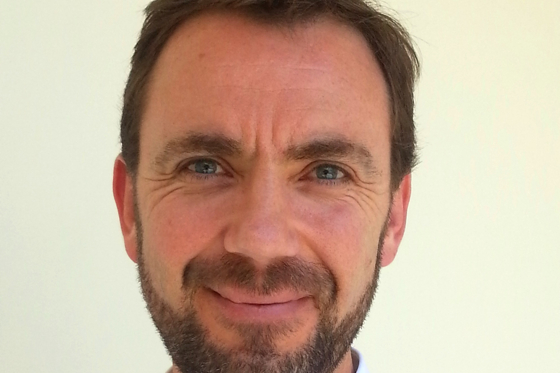It is always fascinating to know how hotel executives understand the cross-cultural sensibilities of a place and establish a brand in a viable manner.
The role of Rory Campbell, director of sales and marketing for the Outrigger Laguna Phuket Beach Resort in Thailand, exemplifies the same. Campbell, an Australian national, was entrusted with the task of establishing the Hawaii-based entity’s 255-room property as a year-round high demand one in September last year. The property opened in Phuket in April 2013.
HOTELS Magazine recently spoke to Campbell about the evolving role of a DOSM, and how challenging is to recruit and retain staff in Phuket.
HOTELS Magazine: How do you assess the performance of the property so far?
Rory Campbell: We are in the semi-opening phase. Outrigger is a relatively new brand in Asia, and the key focus is to establish brand awareness at this juncture. We have laid a strong foundation, and are strengthening our performance, building relationships with key travel partners and creating a great resort experience, which is leading to positive sentiment in public forums, including social media, etc.
While visitor numbers into Thailand have been impacted to some extent in recent months, we have got off to a positive start and are enjoying steady growth as we establish our position in the sought after Laguna area.
H: How has your role evolved?
RC: We live in a transparent society. Previously, KPIs were heavily skewed toward RevPAR, occupancy, ADR… They still count, but now one has to act fast to ensure that guests perceive us positively on a site like TripAdvisor. In the past, the staff used to rely on post stay guest surveys and if there was something that needed to be improved upon or fixed, say a broken bathtub, then it used to be acted upon accordingly. But if there is a complaint or even a suggestion on Twitter, the team needs to respond swiftly. This demands a lot of discipline, and it can be very time consuming, too. But we are living in the world of spontaneity, and this means the industry has to come up with answers whenever a guest is raising a question or needs help.

H: How do you deal with factors that have direct impact on the business – for instance, how social media is impacting your pricing strategy?
RC: We need to keep it simple and remain focused on what we do best. We can be fixated with certain things that are in vogue and over-complicate things for ourselves. Yes, a revenue manager might take a call on value perception pricing. But there are other factors, too, that impact revenue generation. And nothing is more important than a great experience. So if you are enjoying your stint by the poolside, then you might order your meal there.
For me, three things are most important – bed, shower and experience. Then there are supplementary aspects like food and beverage that need to be spot on. And, of course, the human interaction needs to be heartfelt. All of this puts you on the right track. Once you get the basics right, then the probability of guests believing that they have made the right choice is much higher. It validates their decision.
H: How do you strive to delight customers then?
RC: Firstly, we realize that we aren’t a property located say in a city like Mumbai or Singapore. It’s fairly straightforward to understand your target audience when your property is located in a bustling urban destination. Here, in Phuket, we witness a strong seasonality factor. Our guests’ demographic changes dramatically by season. So, for instance, we might have a greater mix of continental European visitors in the high season months of December through April which can then change to Asian short haul markets in shoulder and low season.
Our job is to anticipate guest mix change and tailor our services to some extent so we are creating an enjoyable resort experience for all our markets.
For example, we try to work out itineraries or offer subtle changes to our breakfast offering which will enhance their stay. Similarly, activities at the resort – Elephant Safari, snorkeling etc. are there to delight customers and experience them something new. The room allocation also depends upon the profile of the guests. If there is a family with young children, we try to assign them rooms on the ground floor.
H: What are the major challenges?
RC: Perhaps our greatest challenge in Phuket is in the recruitment and retention of great people. We operate in a highly competitive labor market and as such hiring the right people and keeping motivation levels high is certainly challenging. And the fact that opportunities can be limited in Phuket, their goals can occasionally result in them moving out of this destination.
Also, it is becoming taxing for the staff to deal with the number of social media channels to keep track of what’s happening. This calls for an integrated effort, which is vital but can be fairly time consuming.
H: You have worked in Australia, Thailand and Spain. What’s been your major learning?
RC: Asia is certainly a family-oriented culture. This reflects in the strategy meetings, client interactions etc. People here give credence to knowing you, and building trust before forming a lasting business relationship. So in the West there would be pleasantries, and one would ask: “Is the deal in my best interest?” Instead here, the question goes hand in hand with “Do I know you or can I trust you?” So one needs to be tolerant, especially if you have worked outside Asia.
